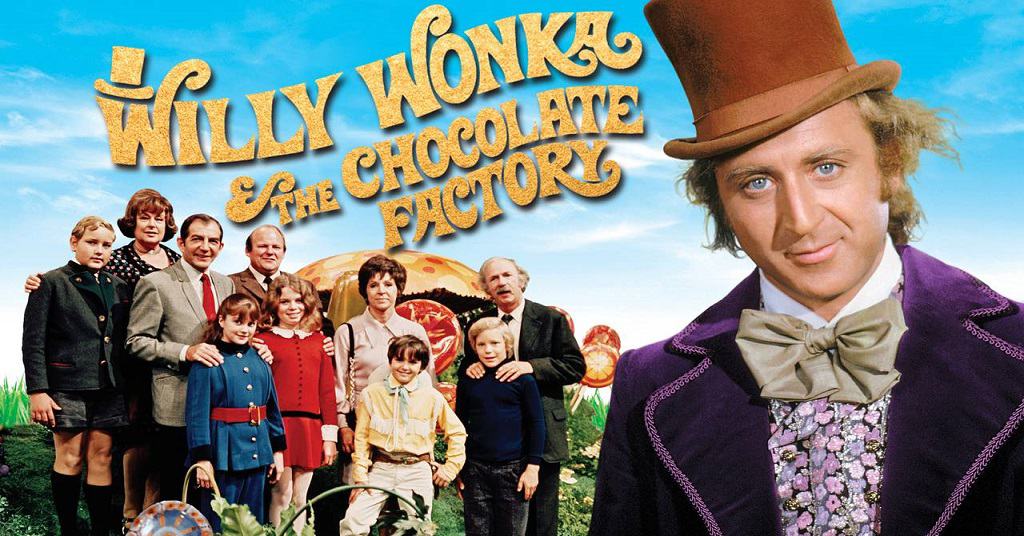Willy Wonka and the Chocolate Factory
Recap
A poor, kindhearted child named Charlie Bucket, after finding a Golden Ticket in a chocolate bar, visits Willy Wonka's chocolate factory along with four other children from around the world and learns the true meaning of imagination.
Spoiler Level: Fairly High but honestly, who hasn't seen this film?
Review
Fifty years ago, a small film costing just three million to make was released to critical and financial success (not a blockbuster, but it made a reasonable amount of money in it’s initial run), but soon faded into obscurity, until the mid 1980s, when it acquired a cult following due to its resurgence on television and video tapes. That film is Willy Wonka & the Chocolate Factory. The film was released in June of 1971, turning fifty this last summer. Based on the 1964 novel Charlie and the Chocolate Factory by Roald Dahl, it is the first of two adaptations of the book. The second being the 2005 film, Charlie and the Chocolate Factory, directed by Tim Burton and starring Johnny Depp. I am not going to talk much about the 2005 film (maybe I will in 2025, when it turns 20).
The story itself is simple. Young, good intentioned, kind, boy, wins a ticket to tour a candy factory and receive a life-time supply of chocolate. Along the tour, the four other winning children, all fall victim to their own faults and Charlie is the sole child left. The gift he receives changes his life. It is the type of fantastical plot that children dream of. I think what makes for the best children’s stories are the inclusions of the extremes and absurd elements that run through children’s minds.
Charlie’s life is extremely drab and dreary. He lives with his four grandparents who all share a single bed, which they have not gotten out of for twenty years. His life is hard and most of the people surrounding him have lost all hope and they try to get Charlie to give up as well, but he remains a good person no matter what is thrown at him. The dreary and drab life he lives is contrasted by the colorful imaginative world inside the chocolate factory, a magical place, where chocolate is churned by waterfall and geese lay giant golden chocolate eggs. Every aspect having no basis in reality, but has the fantastical elements from a child’s mind. The characters are also extreme caricatures of stereotypes. Varuca Salt is beyond spoiled. She wants everything “NOW” and usually gets it. This greed is what gets her in trouble. Augustus Gloop is the epitome of gluttony where he never stops eating and eventually leads to his demise. And so it is with all the other children and their parents. Only Charlie and Grandpa Joe, see the chocolate factory for what it truly is. Pure Imagination.
The production value was high for its time, having to rely on practical effects, since CGI wasn’t a thing yet. The tunnel scene has been credited as one of the scariest scenes in a children’s movie, due to the disturbing images that flash in the background. The story flows well and the movie has a good rhythm. The performances are all very good. Peter Ostrum as Charlie, the kind hearted, loving child is endearing. But the real standout performance was Gene Wilder as Willy Wonka. Not only did he have the correct balance between reality and zany manic energy, but there is a subtle dark humor that was portrayed to perfection. It is no wonder the name of the movie was changed from Charlie and the Chocolate Factory to Willy Wonka And The Chocolate Factory. The movie is also a musical and the song “The Candy Man” is one of the better known songs from the film being made famous by Sammy Davis Jr. Most of the actors, where not cast for their musical prowess and much of the songs are more spoken than sung. And a warning, the Oompa Loompa songs are ear worms and you may never get them out of your head!
Roald Dahl, himself adapted his book and wrote the screenplay, but disowned the film later and was “infuriated” by the plot deviations and the overly sappy musical numbers. He was also upset over the casting of Gene Wilder instead of Spike Milligan. Having not read the book, I cannot compare the two, but this will forever be the role I remember Gene Wilder in.
Final Thoughts
I understand Roald Dahl's objection to the film. They changed his original script and deviated from his creation, but the movie on it's own is magical, made up of pure imagination. I can remember the first time watching it when I was about 5, and being enthralled by the magic that was Willy Wonka and the Chocolate Factory.
#WillyWonka
Willy Wonka and the Chocolate Factory: The Candy Man Turns Fifty!
- Writing - 9/109/10
- Storyline - 10/1010/10
- Acting - 9/109/10
- Music - 9/109/10
- Production - 9/109/10
